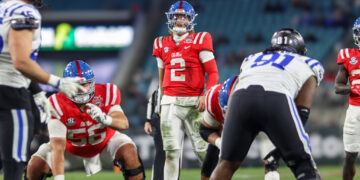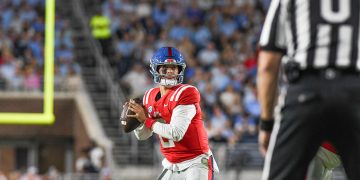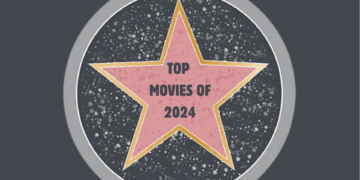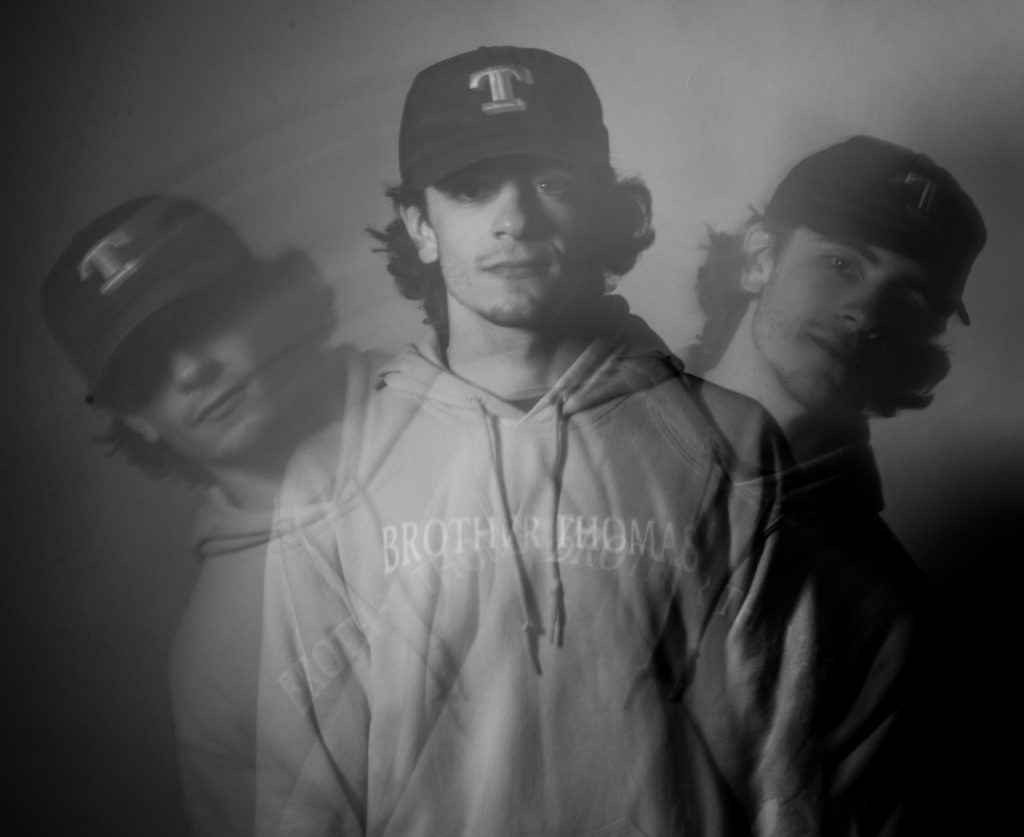
There’s a saga happening in Eli Bettiga’s mind.
It’s a story that’s years in the making — starring Moon Boy, the main character in his new album, “Oakseed.” Eli and his friends developed Moon Boy’s fantasy journey over many nights of playing Dungeons and Dragons and Magic the Gathering. Their character started as simply “the guy,” then “Michael,” after the biblical angel, and then he was named “Moon Boy,” a nickname given to Eli in high school. Moon Boy is small, in his 30’s, wears a robe and has a scraggly beard and long hair.
In a way, Moon Boy is also Eli. He’s a pseudo-version, a sort-of stand-in that Eli says represents how he would react to the trials and tribulations that Moon Boy faces over the course of the album. Though Eli, who performs under the name Brother Thomas, doesn’t experience the powerful visions, personal demons and addictions that Moon Boy has, he still empathizes with him. Moon Boy isn’t exactly a reflection — he’s more of an alternate or projection.
“It’s really easy to play with songwriting that way, because you can just say, ‘Oh, it’s about the character. It’s not about me,’” he said. “If I were talking to you about my personal life, that would be way more difficult for me than to just say Michael went through that. It’s definitely autobiographical.”
Eli, a junior biology major, has been producing music since seventh grade and hasn’t stopped since then — including three albums and countless hours recording, editing and re-recording songs. He’s still sitting on Oakseed’s sequel album, “Kudzu,” that’s set to be released over the summer.
On Friday, he’s headlining a show at Freddy’s Basement — his show, those words being something that he said feels strange to say out loud. Brother Thomas is yet another facet of Eli; he’s the storyteller of “Oakseed,” further complicating Oakseed’s storyline. Eli is writing about Eli who’s writing about Eli.
“It’s like the writers of the books of the Bible,” he said. “Like, they had parables; they write stories to tell lessons. I am writing albums about this specific place to tell points to my audience. So it’s like Brother Thomas is me as a scribe, but instead of writing books in the Bible, I’m writing music.”
Like his music, everything Eli does is 100%. He smiles with his entire face and laughs with his whole body. He can’t sit still, and he created an entire day’s to-do list before the interview for this article. He’s a pre-med student with a 4.0 GPA and still makes time for music every day while maintaining close-knit friendships with his hometown buddies — and taking care of a pet frog.
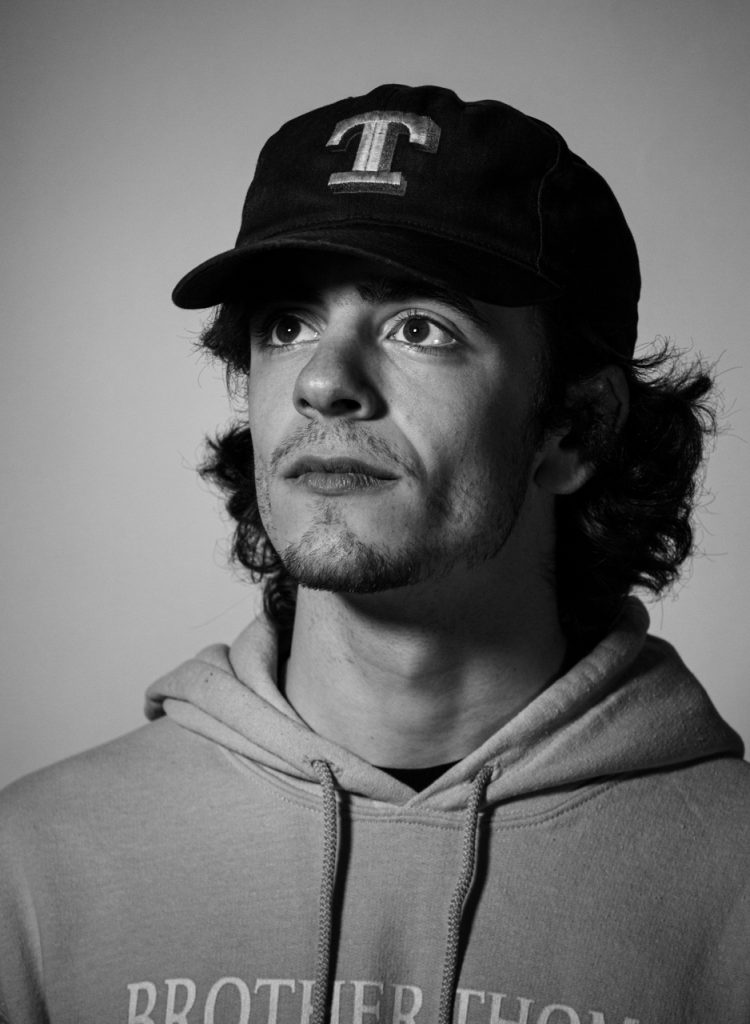
He doesn’t know how he balances it all, but he does, though not without his own anxieties.
“With (music), it’s like I can put (my anxiety) on paper and look at it and analyze it and be like, ‘Okay, this isn’t it. This part is unrealistic…’ If I can put it into the song then analyze myself over and over, it makes it a lot more linear. I can organize my thoughts that way, so instead of keeping a journal like people do, (music) would be like mine,” he said. “There’s so much on ‘Oakseed’ about that — spreading myself too thin.”
A self-proclaimed “power freak,” Eli said that “Oakseed” was the first album that he allowed others to help him. On the previous ones, he did everything: vocals, mixing, lyrics, production and composition, all from his bedroom. Despite his need for control, Eli said that once his album was released, it no longer belonged to him.
“Hopefully, the messages that are conveyed in my songs also help people deal with whatever problem that song addresses,” he said.
“Moon Boy,” the last song on the album, has been of particular interest to listeners. Many — including some of his friends — assumed the sad song is about a recent break up, but according to Eli, the track was written three years before about an argument he had with one of his brothers.
“You can take it that way if you want. If you’ve listened to it, it 100% sounds like a breakup song. It wasn’t, but if that’s how you take it, take it that way,” he said.
According to Eli, he’s not an open person. He struggles to express his feelings to the ones he said are closest to him. His music, however, gives him a voice and gives others a small glimpse at who he is and what he’s feeling.

“It’s crazy because people don’t realize that I made (the album) cryptic on purpose. I don’t want you to know it is about my personal life because that’s not the point. The point is I’m not really an open person with what I’ve got going on personally, but music is how I deal with it,” he said. “I don’t deal with problems as in, I talk about what I do. I just make (music) to forget about it.”
Before becoming Brother Thomas, he played as Lost Puppet Society — “sad boy Eli,” he calls that version of himself. He released an album, “The House on the Hill,” during his senior year of high school. That album, he said, represents a darker time of his life — a feeling he wants to leave in the past.
“The hardest year of my life was my junior year (of high school), and you can see that in ‘The House on the Hill’s’ cover — it’s black with a white house on it. It’s big (and) oppressive, dark, moody, and you can seriously hear that. Like, the whole album is just so dark and sad-sounding,” he said. “I had to move on completely from that.”
In “Oakseed,” he speaks about his vulnerabilities. However cryptic or tortuous the process of writing the story of Moon Boy, Eli uses it to face the problems that are before him.
Still, the problem-solving qualities of self-reflective music are practices, not permanent solutions for Eli. His future isn’t certain, and anxiety will continue to be a part of his life.

“With ‘Oakseed,’ at any time I’m not thinking about school, all I’m thinking about is my album or whatever else going on at the time,” he said. “I haven’t thought about it since I released it. I’m done worrying about it because it’s out. But then I fill my time like worrying about 100 other things.”
Whether as a profession or form of therapy, Eli will continue to create Brother Thomas, and Brother Thomas will continue to create Eli.






